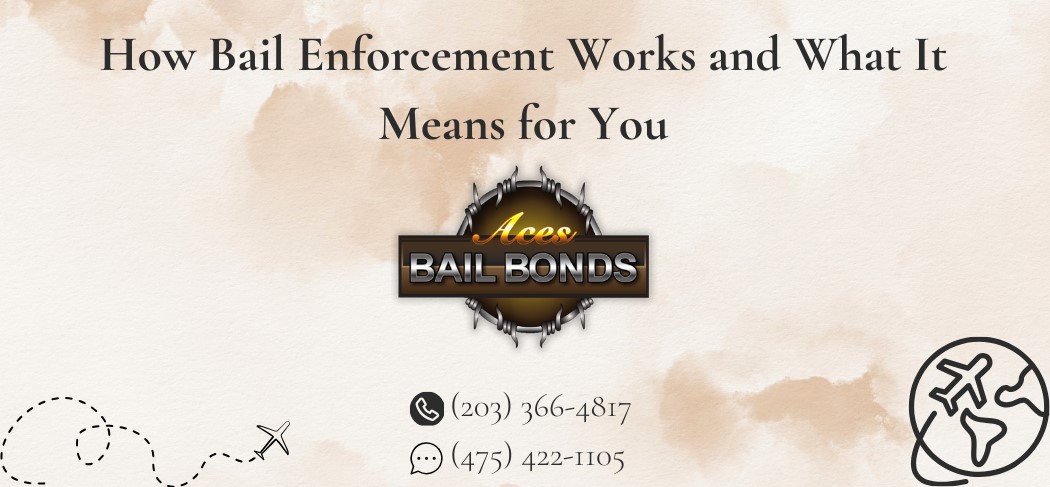
How Bail Enforcement Works in Connecticut and What It Means for You
Bail bonds are a lifeline in the criminal justice system, giving defendants the chance to return home while awaiting trial. But what happens when someone skips court? That’s where bail enforcement agents, often known as bounty hunters, come in. Their role is crucial in protecting bail bond companies and ensuring accountability.
In this guide, we’ll explain how bail enforcement works in Connecticut, what bail enforcement agents do, and what it means for you if you or a loved one are involved in the bail bond process.
Understanding Bail Bonds in Connecticut
What Is Bail?
Bail is money or property posted with the court to guarantee that a defendant appears at all required hearings. If the defendant follows the rules, bail is returned. If they fail to appear, bail is forfeited, and a warrant is issued for their arrest.
What Is a Bail Bond?
A bail bond allows a defendant who can’t afford the full bail amount to secure release. A Connecticut bail bondsman posts the bail in exchange for a non-refundable fee, usually 10% of the total bail amount. The bondsman may also require collateral (such as property or vehicles) to protect against financial loss if the defendant skips bail.
The Role of Bail Enforcement Agents
When a defendant fails to appear in court, bail enforcement agents step in. Their main job is to locate and return fugitives to custody, protecting the bail bond company from losing the full bail amount.
Key Responsibilities of Bail Enforcement Agents:
-
Tracking Defendants – Using surveillance, background checks, and interviews with associates.
-
Apprehending Fugitives – Safely and legally arresting individuals who missed court.
-
Working with Law Enforcement – Coordinating with police and sheriffs when necessary.
-
Legal Compliance – Operating within Connecticut bail enforcement laws and licensing requirements.
How Bail Enforcement Works
-
Bond Agreement
The defendant (or family) pays the bail bond fee—usually 10%—and may provide collateral. The bail bond company posts bail, and the defendant is released. -
Failure to Appear
If the defendant misses court, the judge issues a warrant. The bail bond company is at risk of forfeiting the full bail amount. -
Hiring a Bail Enforcement Agent
To avoid financial loss, the bail bondsman hires a licensed bail enforcement agent to track down the fugitive. -
Investigation and Surveillance
The agent gathers leads through social media, databases, and contacts, conducting surveillance to locate the fugitive. -
Apprehension
The agent apprehends the fugitive and returns them to custody. This can be dangerous and requires training, professionalism, and compliance with Connecticut law. -
Return to Custody
The defendant is brought back to jail, and the bail bond company avoids forfeiting the bond.
Legal and Ethical Boundaries in Connecticut
Bail enforcement agents must:
-
Be licensed and regulated under Connecticut state law.
-
Follow strict rules regarding apprehension and use of force.
-
Respect defendants’ rights while ensuring compliance.
-
Work ethically to protect both public safety and the reputation of the bail bond industry.
What Bail Enforcement Means for You
If you or a loved one are involved in the bail bond process, here’s what to keep in mind:
-
Choose a Reputable Bail Bond Company – Look for transparency, professionalism, and 24/7 availability.
-
Understand Your Obligations – Show up for all court dates and follow bail conditions.
-
Know Your Rights – Bail enforcement agents have authority, but they must stay within legal limits.
-
Be Aware of Financial Risks – Collateral may be seized if bail is forfeited.
-
Stay Informed – Ask your bail bondsman questions and seek legal guidance if needed.
Conclusion
Bail enforcement in Connecticut ensures accountability in the bail system. Bail enforcement agents protect bail bond companies, work with law enforcement, and return fugitives to custody.
For defendants and families, understanding how bail enforcement works is critical. By working with a trusted Connecticut bail bond company, following bail conditions, and staying informed, you can avoid the risks of bail forfeiture and navigate the process with confidence.
📞 Call Aces Bail Bonds at (203) 344-7483 for professional 24/7 bail bond services in Connecticut.

